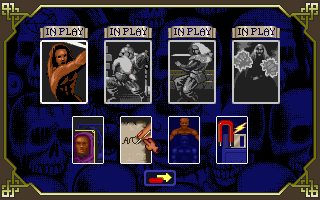

They both involve consumerism … and rebellion against it …. They are neither wholly immersive nor wholly interactive but, rather, both immersive and interactive. are neither wholly games nor wholly narratives but use structures of both games and narratives. By considering tabletop role-playing games as techniques for shaping our experience of imagined worlds, this book explores and documents how imagined worlds shape the experiences of those who visit them regularly. New cultural innovations shape our imagination, and vice versa. The way we experience imagined worlds, is not static. Despite this acknowledgment, we still have much to learn about how people, especially people in groups, interact with these worlds that we imagine. Coleridge called imagination “the living Power and prime Agent of all human Perception … a repetition in the finite mind of the eternal act of creation” ( 1817, Chap. Anthropologist Arjun Appadurai, for example, said that “the imagination is now central to all forms of agency, is itself a social fact, and is the key component of the new global order” ( 1996, p. You feel like the idea was a little contrived, and maybe not your best session, but a fitting end to a campaign that you will remember for the rest of your life.īoth scholars and poets have acknowledged the importance of imagining our world, and alternate possible states of that world, as a driving force in human experience. None of the heroes are sure which of the survivors are originals and which are clones. The battle that ensues is chaotic, but in the end Lord Big Butt is slain. In front of the villain’s throne stand four figures, each a mirror image of one member of your party. Once inside, you fight through hordes of enemies until you come to the final chamber, where Lord Big Butt has stationed his new champions. After spending the past few months tracking your nemesis Lord Big Butt (who bears a strong resemblance to your sixth grade science teacher), you and your fellow adventurers have discovered his secret mountain lair. The dungeon master, Aaron, has decided to work up something special for this last game session you will all play together.

Over the past five years you have spent countless hours in this basement, the faux-wood paneling reflecting back laughter and arguments in roughly equal measure. In just a few weeks you and your friends will head off to different colleges. The table in front of you is scattered with papers and half-empty cans of Mountain Dew.

It is 1990 and you are sitting in your friend’s basement.


 0 kommentar(er)
0 kommentar(er)
